Curriculum
Eight Two-Week Sessions
Each session includes 1-2 journal articles on racism and an interview with an expert. The readings and interviews provide perspectives and insights for over-represented and minoritized groups. The curriculum also provides tips and advice for becoming more inclusive and or navigating challenges related to racism in Geoscience. The curriculum pages will be available at least a week before the session's start date. View a table summary of the URGE curriculum here.
Note: Week 6 interview will be held on Tuesday, April 6 to observe Easter Monday on April 5.
Racism and Definitions
1/18 - 1/29
In order to have meaningful conversations we must first define the vocabulary we will use.
“Definitions anchor us in principles” - Kendi (2017, Nation Books).
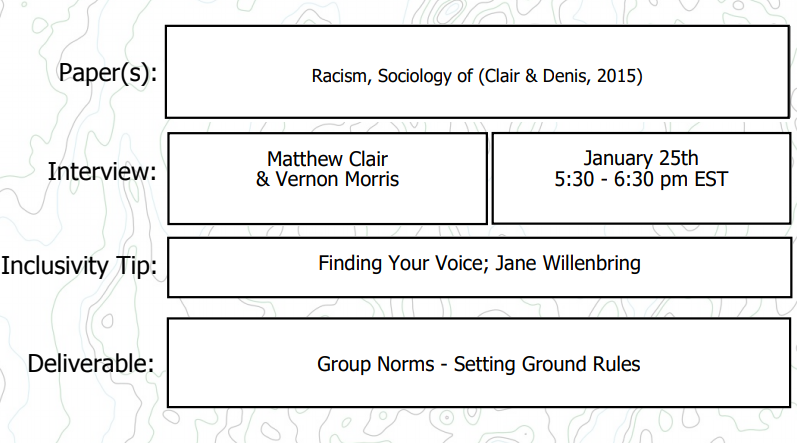
Visit Curriculum Page
Racism and Individuals
2/1 - 2/12
We must not only define the vocabulary we will use but define where we belong in these words.
"Many [...] indeed know better, but [...], people find it very difficult to act on what they know. To act is to be committed and to be committed is to be in danger. In this case, the danger [...] is the loss of their identity." - James Baldwin, 1962
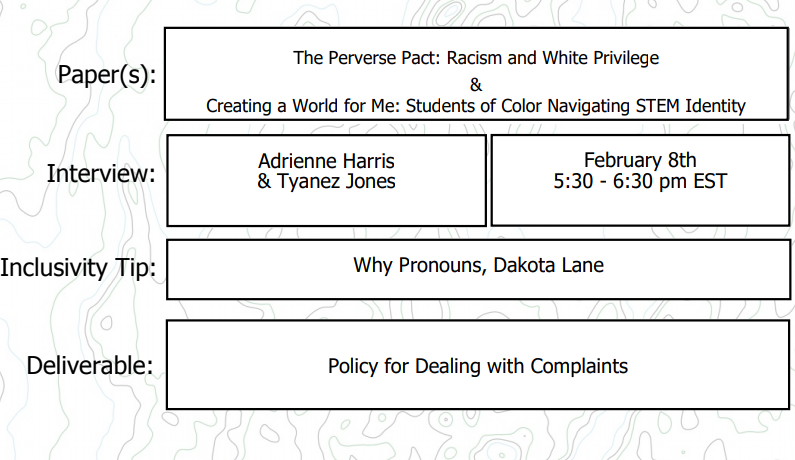
- James Baldwin, 1962
Racism and History
2/15 - 2/26
To become anti-racist, we need to understand the origins of racism within our discipline.
"Modern science has historically been the domain of an elite, white male minority residing in the global north, and ethical and instrumental arguments for increasing diversity in science have become well circulated and promoted." - King et al. (2018, Facets)
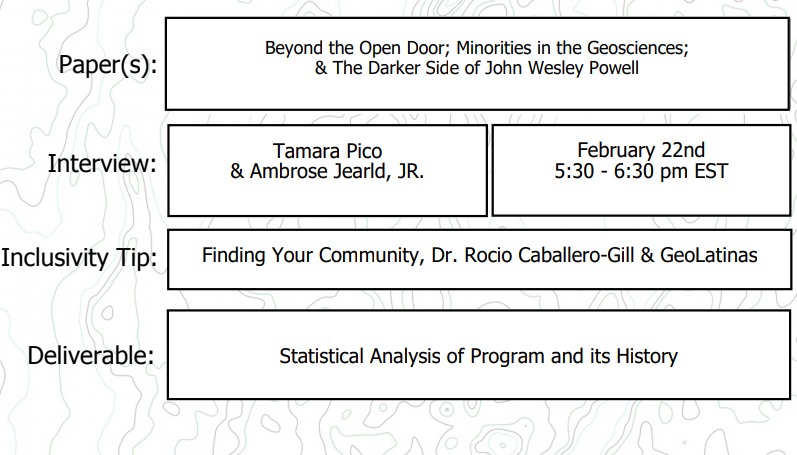
Racism and Justice
3/1 - 3/12
Geoscientists have engaged in a long history of environmental injustices where minoritized communities don't always have a platform to advocate for themselves.
"Unravelling the legacies of colonial science [ . . . ]," requires conversations, "between the sciences and other disciplines about their shared colonial past and how to address the issues it creates." - Deb Roy (2018, The Conversation).
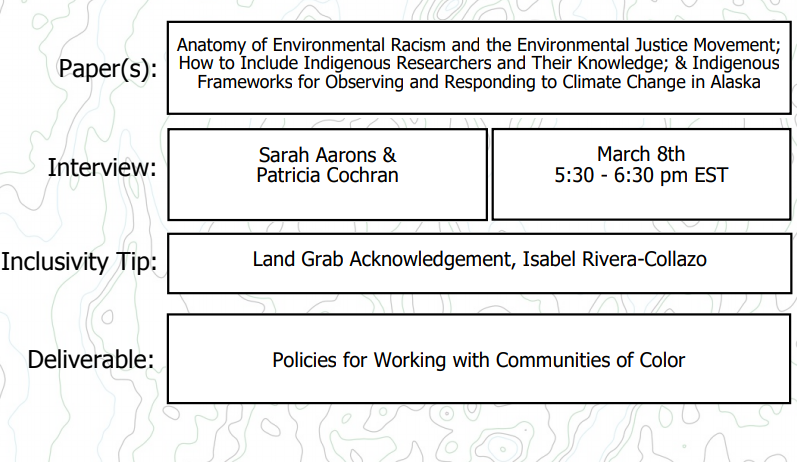
Racism and Accessibility
3/15 - 3/26
Structural and Institutional Racism have set in place barriers that prevent the inclusion of minoritized communities. Admissions and hiring policies geared to combating these barriers are necessary to solving this issue.
"In place of mass incarceration, there is mass exclusion [in geoscience].In place of police brutality, ... [geoscience] careers are killed through forced attrition and under-investment." - Morris et al (2020, notimeforsilence.org)
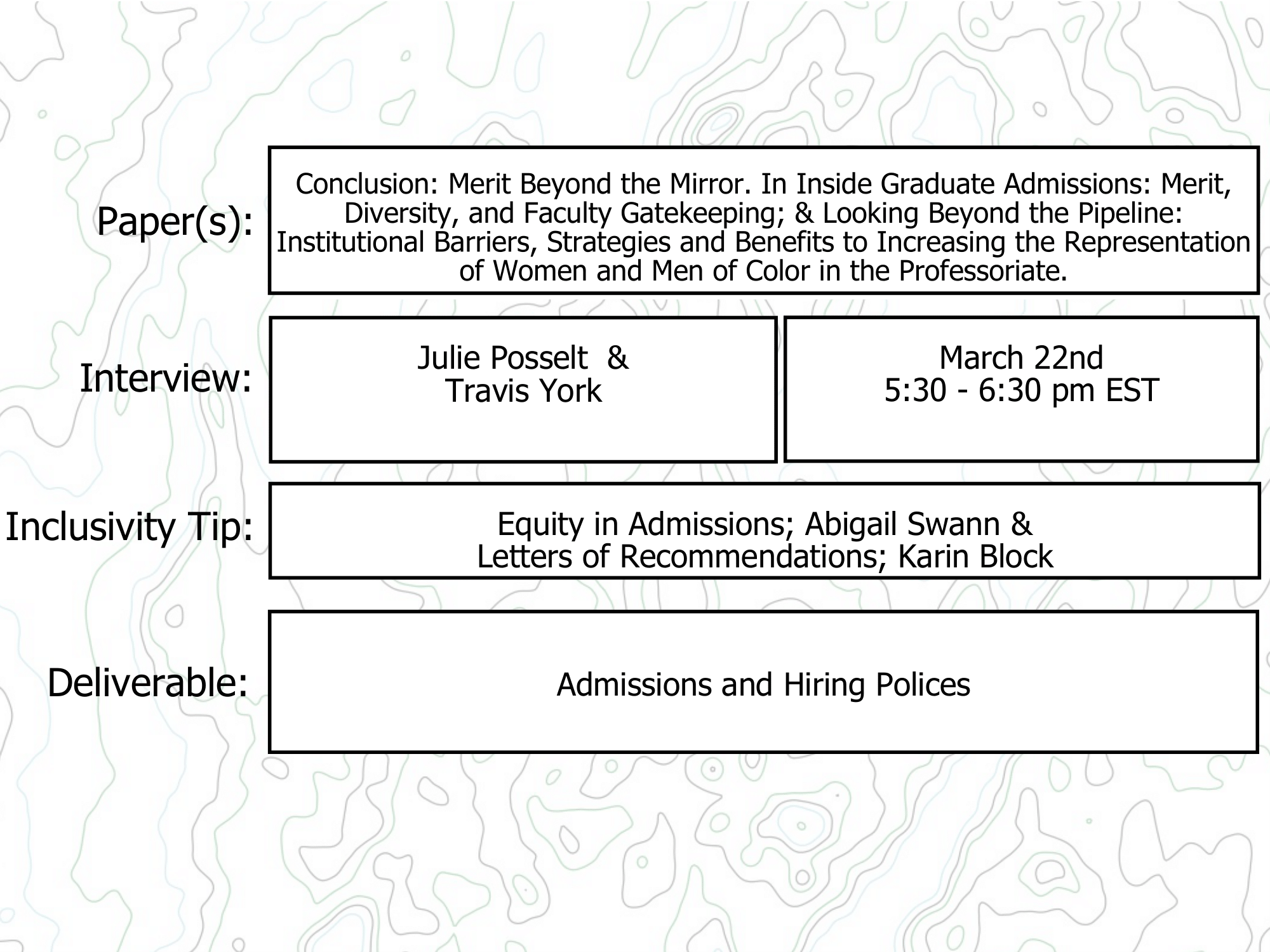
Racism and Inclusivity
3/29 - 4/9
Many within our community are hoping that George Floyd’s death and the resulting public outrage may prove to be a turning point that leads to a shift in the culture of the geosciences from one that is, at best, passively not racist to one that is actively anti-racist.
"Being antiracist means developing and supporting antiracist policies through intentional introspection and subsequent action." - Chaudhary and Berhe (2020).
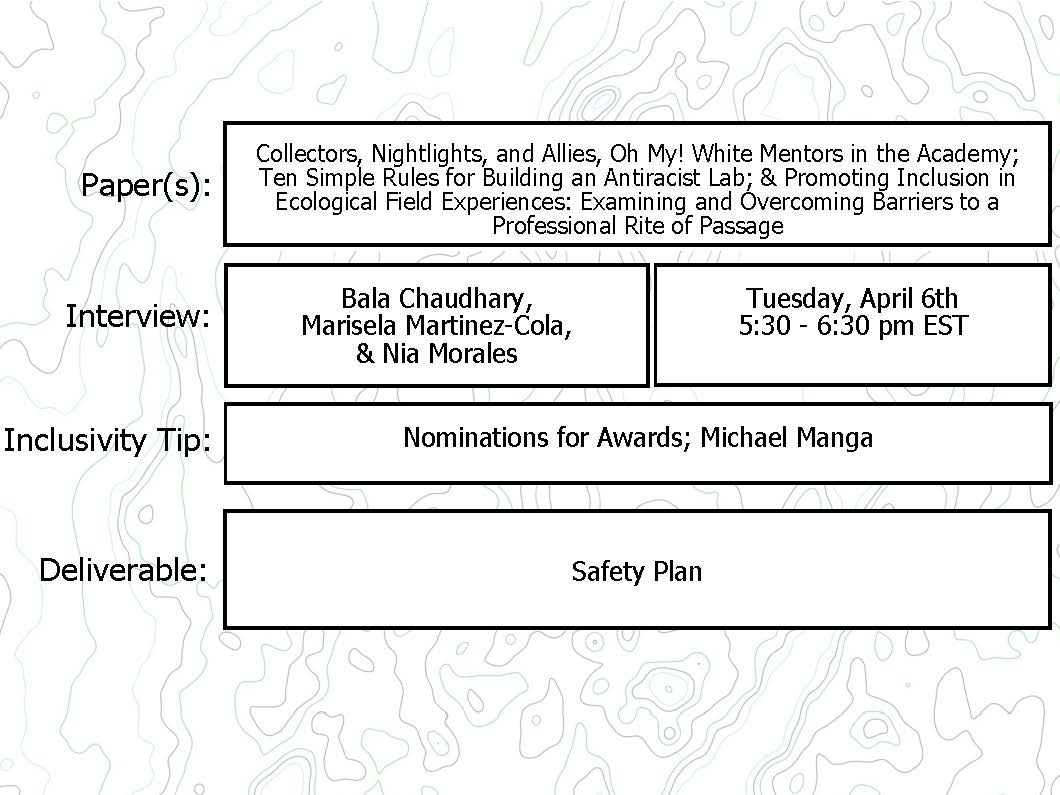
Visit the Curriculum Page
Racism and Self Care
4/12 - 4/23
The myriad efforts taking place are inspiring. However, despite these efforts, BIPOC will continue to face racism and discrimination in their day-to-day lives, in classes, labwork, fieldwork, and our discipline.
"Like COVID-19, racism is real. Take care of yourselves kings and queens." - Dr. Vasshe (2021)
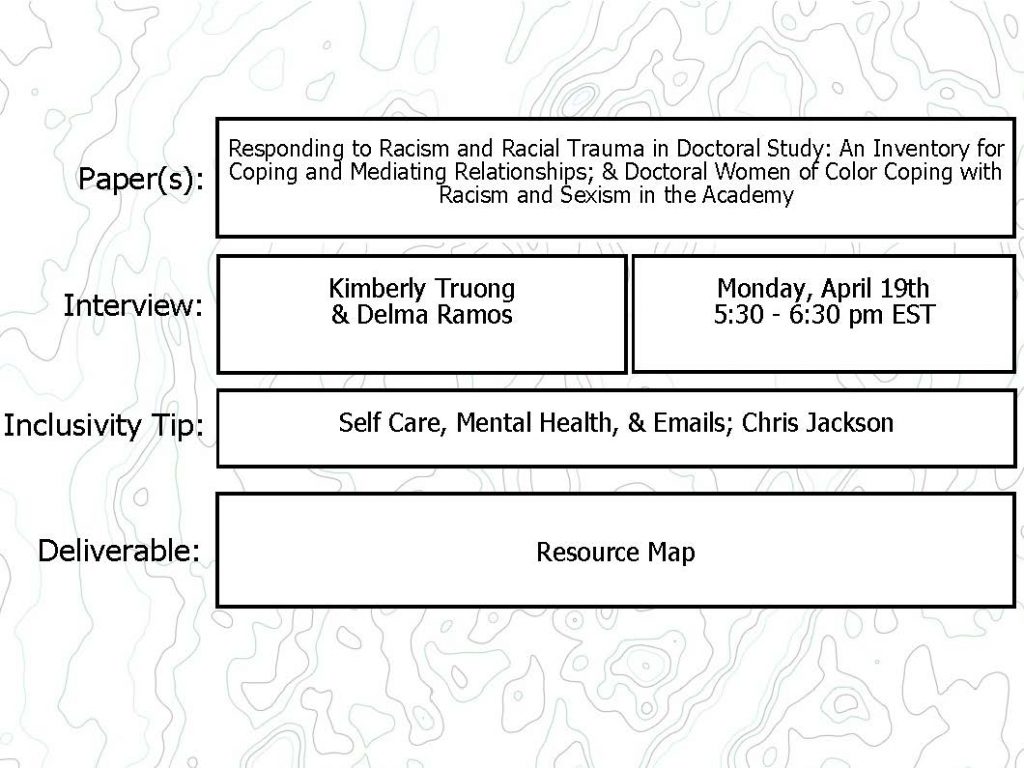
Racism and Accountability
4/26 - 5/7
In order to ensure our hardwork is achieved, we must hold ourselves accountable to our words.
"Anti-racist Policies will only be as good as the data that inform them, the people who uphold them, and the resources that go into supporting them" - The URGE Team (2021)
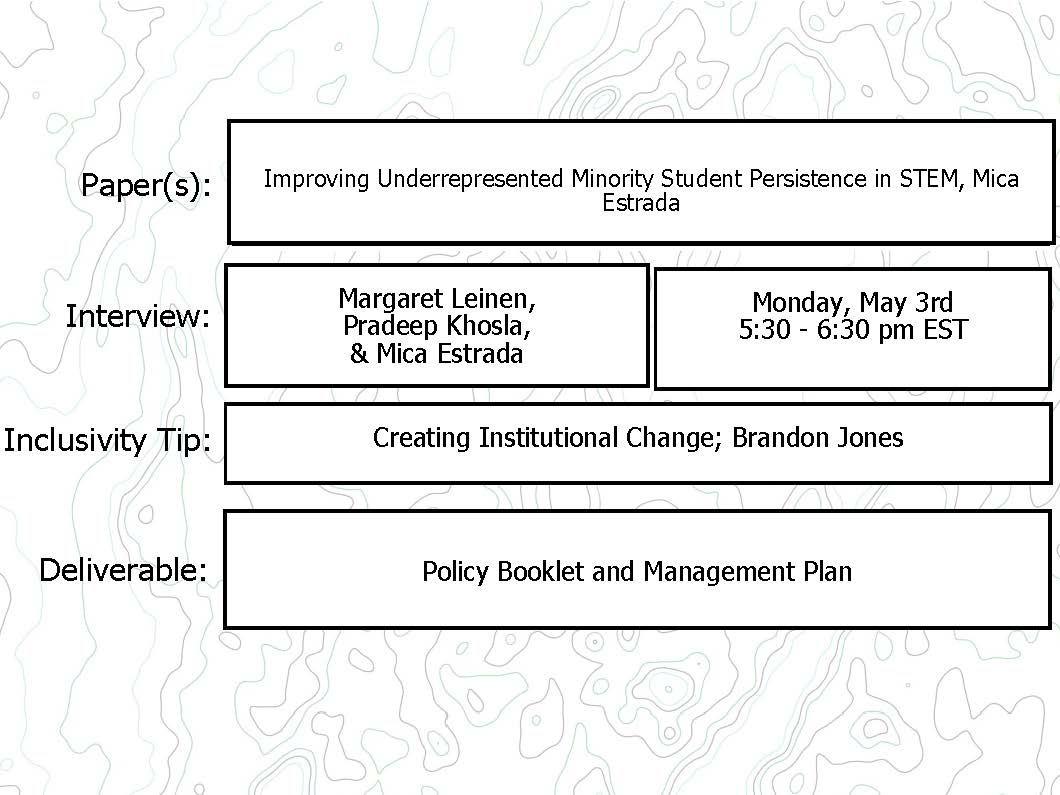
URGE is supported by the National Science Foundation under grant EAR#1714909 and by Woods Hole Oceanographic Institution. The opinions, findings, and conclusions or recommendations expressed on this website are those of the URGE leadership team and do not necessarily reflect the views of the National Science Foundation or Woods Hole Oceanographic Institution.
